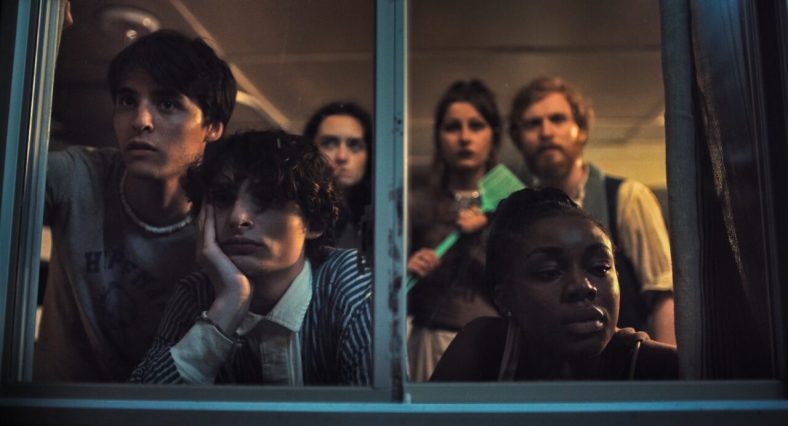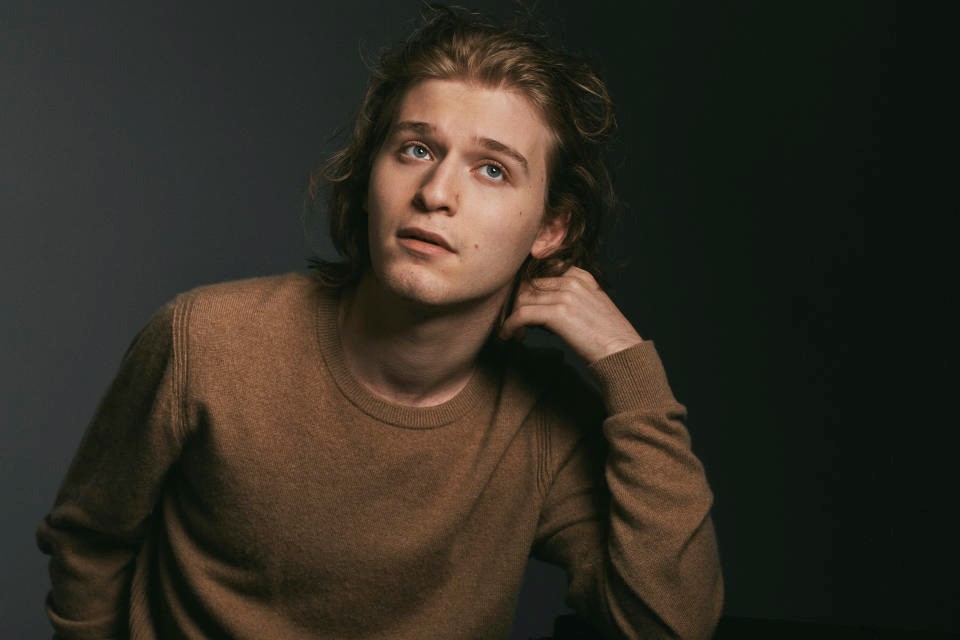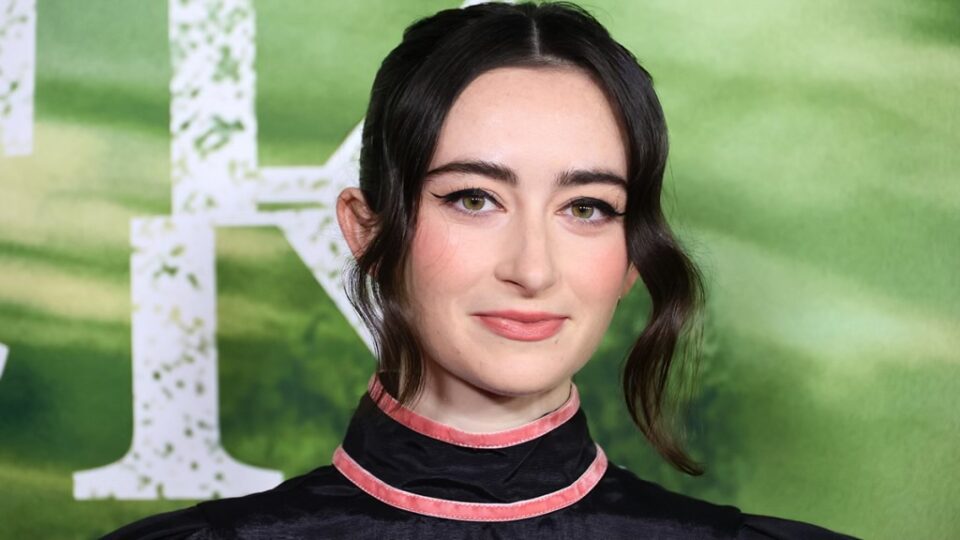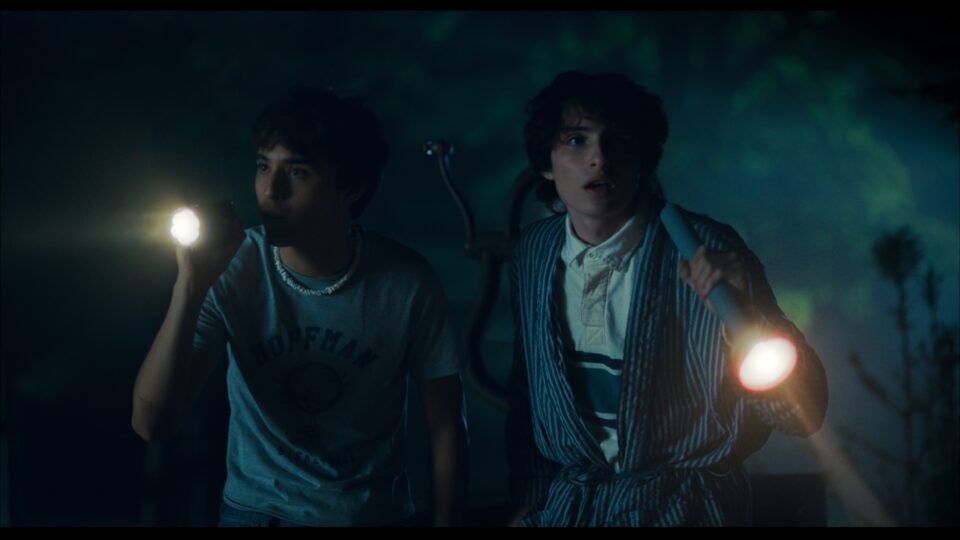‘Hell of a Summer’ Stars on Crafting a Slasher Comedy for a New Generation

Note: Hell Of A Summer received an interim agreement from SAG-AFTRA, giving the cast permission to do interviews during the strike.
We may be ready to switch into Fall Mode, but summer isn’t over just yet. At least not for Fred Hechinger (Fear Street, TV’s The White Lotus) and Abby Quinn (A Knock at the Cabin) the stars of Hell of a Summer, a slasher comedy that had its World Premiere at the Toronto International Film Festival (TIFF) earlier this month.
While in Toronto to promote the film’s screening as part of the festival’s Midnight Madness program (dedicated to “the best in action, horror, shock, and fantasy cinema”), Hechinger and Quinn took some time to chat with Dread Central about collaborating with actors-turned-directors Finn Wolfhard and Billy Bryk, making art that doesn’t speak down to your peers, and the burden of playing a character named after a horror icon. Read the interview, which has been edited and condensed for length, below.
Dread Central: I think this film is a comedy horror vs. a horror comedy because I think the comedy comes first. What do you guys think?
Fred Hechinger: I strongly agree with that.
I think one of the things that I most miss in movies is ensemble comedies. It’s one of the things that made me fall in love with movies, and I think in talking to Finn and Billy early on, the main intention of the film was to sort of have the heart and the grounding of it to be a rom-com character-driven comedy that’s dressed up in the costume of a slasher movie.
So, even though Friday the 13th might be what brings you in, I think ultimately it’s hopefully movies like Rushmore and Superbad and things like that.
Abby Quinn: I feel like the killings and the horror element are kind of like the cherry on top of everything else that’s going on. Underneath all of it is a grounding force of friendships and romance.
I also think it speaks to people when they are in their twenties and there could be something horrific happening, but oftentimes, some of the most important things feel like friendships or romance and crushes. After watching it twice, that kind of stuck out to me.

DC: And especially with your character, Fred, it’s about this awkward period after your teenage years where you’re trying to figure out what you want to do, but you are still very tied to your childhood and the things that really made you happy then and wanting to bring that into your adulthood.
FH: Completely. “What do you hold onto and what do you go of?” I find to be a routinely difficult question in life, especially when everything is both exciting and terrible at the same time all the time, which is what it feels like a lot of times to grow up.
The other thing is, it is more interesting to see how people actually react to horror movie things than those horror movie events. And I think that was another hope for the characters. The way that people would actually react to a slasher would probably reveal all of our own insecurities and our aspirations, but also the ways that we want to be heroes and stumble into it. It’s not a clean rise to heroism. It’s a very messy route that’s full of mistakes and foibles.
DC: And the people that you care about get in the way. Like Fred’s character, Jason is very much, ‘I got to do my job and my job is to protect these people at this camp’. And then, Abby, your character [Claire] likes Jason, and so is kind of along for the ride of what Jason is doing. So it’s really about those relationships too, and that plays into how you react to the horror.
AQ: Yeah, the horror doesn’t take over. Each character is kind of wrapped up within themselves or their own feelings towards a person. So it’s like the minute that you’re out of immediate danger, you just go back into your own issues or [move onto] resolving something else.
But I would agree. I think my character likes Jason. And I think is maybe not quick to any strong emotion. So when people are screaming, she’s always second-guessing something, I would say, before committing a hundred percent.
DC: Whereas Jason is going a little more blindly into it. He can’t help himself.
FH: But also he would be a total goner if it wasn’t for Claire! Because he’s not only the only grounded, truly sensible human being, I think. Everyone is grounded in their own way.
I think there’s a level of shared insanity to the camp that Claire very nobly avoids in her strength as a human being. And for Jason to just walk into it thinking that it’s always going to work out … it wouldn’t without that community and friendship and romance that you’re touching on. The human connection ends up being why you go to camp and also why you don’t want to leave camp.
DC: Claire’s sort of like the audience substitute.
AQ: I think she’s kind of stuck between two worlds, almost for the same reasons that the audience I think is enjoying the film. She keeps returning to this camp with these people, and it could be completely by force, but I also like to think that, to some degree, she enjoys it. Or she herself isn’t completely aligned with these people, but she’s at least finding it entertaining and getting something from this community, even if she feels like an outsider.
I think she’s definitely the most pragmatic and levelheaded. And I don’t think it’s a front. I think that is who she is. And I also think probably somewhere underneath she could let loose a little bit, but she is not there yet.

DC: Well, in slasher movies, usually when people let loose, that’s when the trouble happens! So I think she made the right move.
But I know you shot this film in Ontario [Canada] and then you came to the Toronto International Film Festival for the World Premiere. How did it feel to basically come back to camp to premiere this film?
AQ: I’m worried that I’m going to think that’s going to happen every year! My body is just going to mentally think “Back to camp!” at the end of every summer, or “Back to Canada.”
It was much more condensed and we were only there for a few days, but it felt to me like the same amount of fun and community. I feel like we all just kind of picked up where we left off, which could happen in any place. But I think being back in Canada reminded us all of that experience.
FH: We prepped the movie in Toronto, and so the first time that we all met as a group and had dinner, we took this long walk through the city. The day after our premiere, we ended up taking a very similar walk, passing the very same spots. It was just one of those moments in life where I felt pretty amazed by the power and congruity and happiness of the whole situation. I really love Canada and our cast and our crew, which is in large part Canadian. And so yeah, there was kind of no better festival to premiere the movie at.
When we finished last year, a lot of us went to TIFF and ended up seeing a lot of Midnight Madness movies. In the back of our heads we thought, “Oh boy, oh boy, if we could play here, that would be heaven”. So you just feel very happy when something that you wish happens.
Also, where we were filming was so incredible. I mean, it was a camp that was serendipitously free for the month of July when we needed it. We were in the middle of the woods three hours outside of Toronto. It was just a true gift to be working there and living in that environment.
DC: Having the camp experience while filming a camp movie!
FH: And I’m of the belief that it just does translate. I think film catches the time and place and the experience. So I’m really happy that we filmed that.
DC: Abby, this is your second cabin movie of the year [the first being A Knock at the Cabin]. Are you ready to move on and shoot in a different kind of location?
AQ: Someone mentioned that to me this past week, but I hadn’t really thought of it! I think just because the two experiences were so completely different. Well, the other cabin movie was mostly on a soundstage, so we weren’t outside. But it was a real cabin that was built.
I feel like I get a lot from filming outside or being in nature, so I don’t know if I’m ready to move on. I would happily do a few more!
DC: Hell of a Summer 2?
AQ: That’d be great. Yeah!

DC: Obviously a big part of this movie is the collaboration of Finn and Billy. How was it working with them as directors, seeing as they are actors themselves?
FH: I think there are a few factors to this that all end in creative trust and freedom, which I think comes from a lot of things. The fact that they’re our age and the fact that they’re actors themselves makes it really feel like you’re in the thick of it with them. They’re completely our leaders and steering the ship, but the way that they’re able to do that is with so much more kinship and just firsthand experience.
The impulse in a scene to be present with the other actor, to make that person laugh, to engage that person, to be inspired by them is usually one of the most important things. But it’s really cool in this case because they’re also the directors and the people that you’re acting with. So those impulses are combined. It just felt like everything was sort of streamlined and there was no moment where we weren’t exploring or trying to get at the heart of things because I felt like their priorities were shared by all of us.
AQ: Yeah, I agree. When I think back to it, I feel like they just understood the emotion of everything so well, and it was almost like some things were almost unspoken. I think because they’re in the piece and they’re directing, it was just a shorthand that developed through trust.
Any sort of guidance or direction that they would give me or anyone, it felt like I was just kind of right there with them. And I think any sort of barrier that can stand between an actor and a director was just gone because they know how to completely communicate their feelings and what they want, and they were also in the scene, so it’s like we’re all on the same page. Even when they weren’t, they would run from the camera to talk to us. Sometimes it wouldn’t even be about the scene, it would be about something else. We were all just on the same page about everything.
DC: Fred, you mentioned Finn and Billy being of the same generation as you. I’m wondering, how do you think that younger generations are going to respond to this? I noticed lots of younger folks in my screening and they were reacting very strongly. It was nice to see because there’s a lot of horror that’s made by older folks that is trying to speak to young people, but are not doing it, so it ends up being embarrassing.
FH: That’s so wonderful to hear. I never want to make any stories that condescend to anybody, character or otherwise. And the hope is to make something that we think is really funny and has a lot of heart and meaning. I think that’s especially true of people who are the age of the characters.
There’s just a fair amount of art where you feel that distance. You feel someone trying to empathize with a character, but still, if it’s a younger person, I don’t know what it is, it’s just that kind of feeling where suddenly you feel off, or that someone’s been flattened or into something. And I guess I know all the ensemble of actors that we had were all people that really cared about these characters and all of their madcap glory, and also in all of their striving for safety and purpose. I hope that that’s felt, especially by young audiences.
AQ: I’ve been on Twitter a lot… and there was this one person who had a whole page dedicated to the movie already. The fact that that’s happening and so few people have seen it, just makes me happy that people are excited and can already identify with the characters and the dynamic.
There was one person who started making Starbucks drinks for every character! Stuff like that, where it’s clearly already hitting something for people in this age group. And I feel like that’s what I want people to take away from it. Just to be able to watch something and laugh and cry if they feel like that, but also find some sense of community and [feel] that they’re seen in some way.
FH: Starbucks drinks… I didn’t even realize that was my main hope for a takeaway, but that’s it.
AQ: I think you were a white—
FH: —frappuccino?
AQ: Yeah, yeah. Or white caramel something. I’ll send it to you. I hope there’s going to be more.
FH: Well, at a certain point, if we’re lucky, there will be warring Starbucks drinks and then people will kind of debate it. That would be amazing!
DC: My last question is for Fred. So obviously your character’s name is Jason. And Jason, he has a lot of baggage in the horror community. What do you say to people who are maybe concerned about a new Jason coming into the horror scene?
FH: I think there’s enough room for lots of Jasons in the horror genre!
I mean, I think another thing about this movie that I really care about is that people are weird and surprising always. And I guess I quite enjoyed that his name already carries the baggage of the most dreaded horror slasher, or one of the most, and he has to fight that baggage day in and day out in a sense.
I think that all the characters in this… you think you know them on paper and also they’re other things, too. Because in my experience, that’s all people. And I hope movies can continue to keep people awake to that surprise.
AQ: Do you know any famous Claires in film?
DC: I always think of The Breakfast Club is what I think of Claire.
AQ: Oh, that’s good. What’s Silence of the Lambs?
FH: Clarice.
AQ: I guess I kind of carry that baggage.
DC: She’s a pretty iconic final girl. Also has dark hair. Smart, realistic. Yeah, I see it. I see it.
Hell of a Summer had its World Premiere at the 2023 Toronto International Film Festival. It does not have a formal release date yet.
Categorized:Interviews

